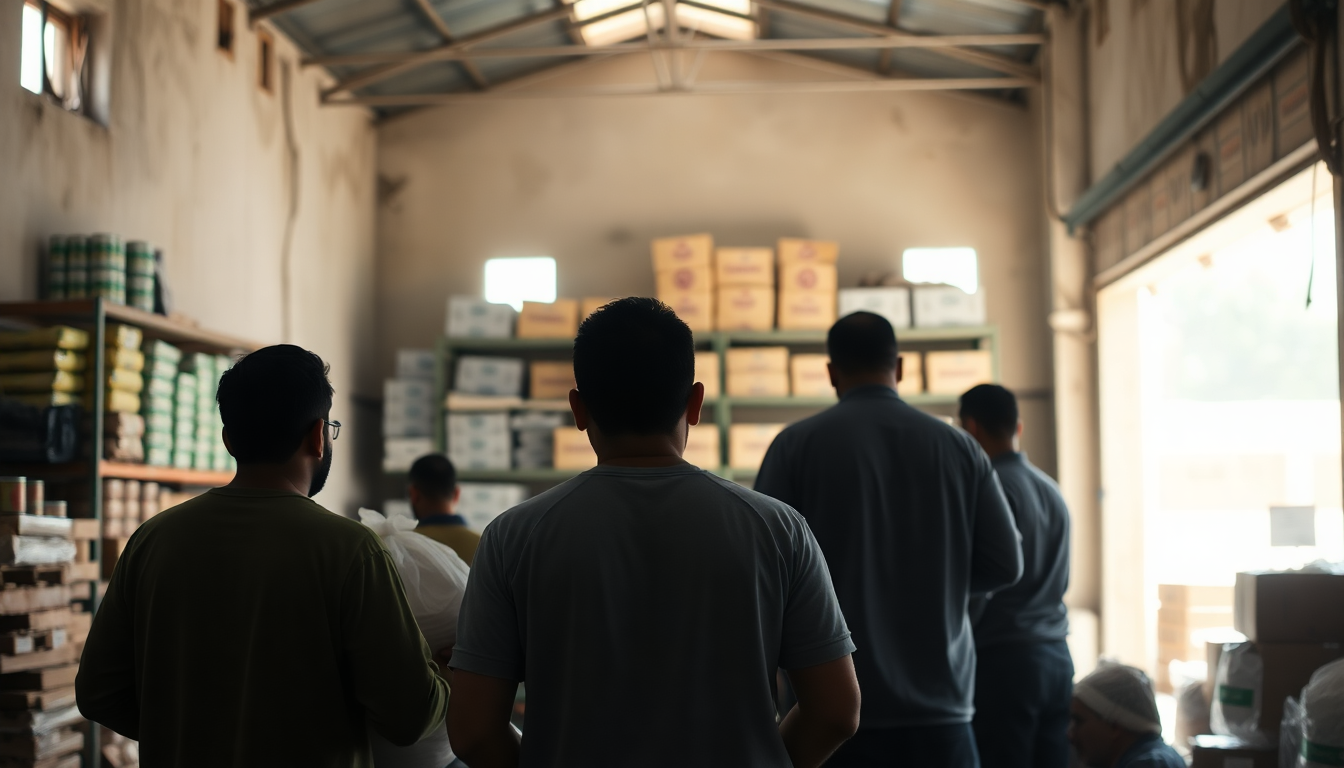Table of Contents
The humanitarian situation in Gaza is a pressing issue that continues to capture global attention, especially as various organizations strive to provide relief amid the ongoing conflict. Recently, Fox News correspondent Bill Hemmer gained exclusive access to a distribution site run by the Gaza Humanitarian Foundation (GHF).
His firsthand account shines a light on the complex realities of aid delivery in a region laden with controversy. But what exactly does this mean for the people on the ground? Let’s explore the current dynamics, challenges, and broader implications of humanitarian efforts in Gaza.
The Current State of Humanitarian Efforts in Gaza
As the international community grapples with the deepening humanitarian crisis in Gaza, the GHF has stepped up as a key player in aid distribution. Supported by both U.S. and Israeli entities, this foundation is working hard to deliver essential supplies to a beleaguered population.
Yet, navigating this landscape is anything but easy. Hemmer highlights that while GHF has achieved significant milestones, it also faces scrutiny regarding its affiliations and operational methods. Have these challenges hindered its ability to help those in need?
Take Rafah, for instance—a city in southern Gaza that has borne the brunt of Israeli military operations targeting Hamas leaders and infrastructure.
The consequences are severe, leaving many Palestinians struggling for basic necessities like food and medical supplies. Local residents paint a grim picture of a community caught between conflict and the heavy hand of Hamas. How long can this cycle of suffering continue?
Adding to the uncertainty, Prime Minister Benjamin Netanyahu’s potential plans for a full occupation of Gaza could dramatically shift Israeli policy.
For families of hostages still held by Hamas, such a move raises serious concerns about the safety of their loved ones. It’s a tense situation that keeps many on edge.
Challenges Faced by Aid Organizations
Despite GHF’s claims of distributing over 106 million meals since May, the organization is not without its hurdles.
The United Nations Human Rights Council has called for GHF’s dismantling, alleging that humanitarian relief is being exploited for political and military ends. This criticism highlights the precarious balance between providing aid and navigating the complex geopolitical landscape of Gaza. Can real help flourish amid such tensions?
Reports from U.N. experts suggest that Israeli forces might indiscriminately target Palestinians seeking assistance at GHF distribution sites. While GHF firmly denies these allegations, the threat of violence looms over both aid workers and those relying on their support. In a chilling move to protect its team, GHF has even requested that aid workers’ identities be concealed in media coverage to prevent possible retribution from Hamas. What does this say about the risks involved in humanitarian work today?
The intersection of urgent humanitarian needs and geopolitical tensions complicates aid delivery. While GHF aims to sidestep Hamas in its operations, we must ask: is this approach sustainable or ethical in the long run?
Looking Ahead: The Future of Humanitarian Aid in Gaza
As we consider the future of humanitarian efforts in Gaza, funding and operational capacity take center stage. Recent U.N. reports reveal major challenges in ensuring that aid reaches those who need it most, with a staggering number of trucks failing to deliver supplies to civilians. This points to a systemic issue that must be addressed to improve the effectiveness of relief operations. How can we fix this broken system?
Moreover, the international community’s response will be crucial in shaping the landscape of humanitarian aid in Gaza. As discussions continue about the flow of limited commercial goods into the enclave, it becomes evident that a multifaceted approach is essential to tackle both immediate needs and the root causes of this humanitarian crisis.
Ultimately, the plight of the Palestinian people highlights a larger narrative about how geopolitical conflicts affect civilian life. As organizations like GHF work to navigate these turbulent waters, the need to provide meaningful assistance while remaining apolitical must guide their efforts. The road ahead is rocky, but the commitment to alleviating suffering remains a vital goal. Are we ready to support this mission?





